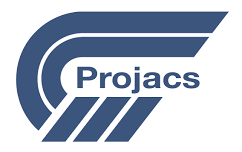Agile Project Management has emerged as one of the most effective methodologies for managing dynamic and complex projects across various industries. It offers a flexible approach to project execution, emphasizing iterative progress, collaboration, and responsiveness to change. Unlike traditional project management techniques, Agile fosters an adaptive mindset that empowers teams to deliver value incrementally while maintaining high levels of productivity and innovation.
The framework of Agile is built on the principles of customer-centricity, transparency, and continuous improvement. These principles allow organizations to align their project outcomes with business goals and stakeholder expectations. Through Agile, teams can break down large, intricate projects into manageable segments, enabling faster delivery cycles and continuous feedback integration. This iterative approach ensures that risks are minimized, and the project remains aligned with evolving priorities.
One of the greatest strengths of Agile Project Management is its versatility. Whether it’s software development, product design, or operational improvement, Agile practices can be tailored to suit diverse project needs. It promotes collaboration across cross-functional teams, ensuring that everyone involved has a clear understanding of the project’s objectives and contributes to its success. Agile creates a shared sense of ownership and accountability, which is instrumental in achieving high-performing teams.
This course on Agile Project Management is designed to equip participants with the essential knowledge, skills, and tools to lead and manage projects successfully using Agile methodologies. Participants will gain a deep understanding of Agile frameworks such as Scrum, Kanban, and SAFe, as well as practical techniques for applying these frameworks in real-world scenarios. By mastering Agile principles, attendees will be able to drive project efficiency, stakeholder satisfaction, and team engagement.
The training also focuses on developing leadership and communication skills that are critical in Agile environments. Agile leaders are not just managers but facilitators who create an empowering and collaborative environment. This course will prepare participants to inspire teams, resolve conflicts, and navigate challenges effectively while fostering a culture of agility and innovation.
Whether participants are new to Agile or seeking to refine their expertise, this course offers a comprehensive exploration of Agile practices and their transformative impact on project delivery. It is tailored to ensure that attendees leave with actionable insights and a clear roadmap for implementing Agile in their respective organizations.




















































